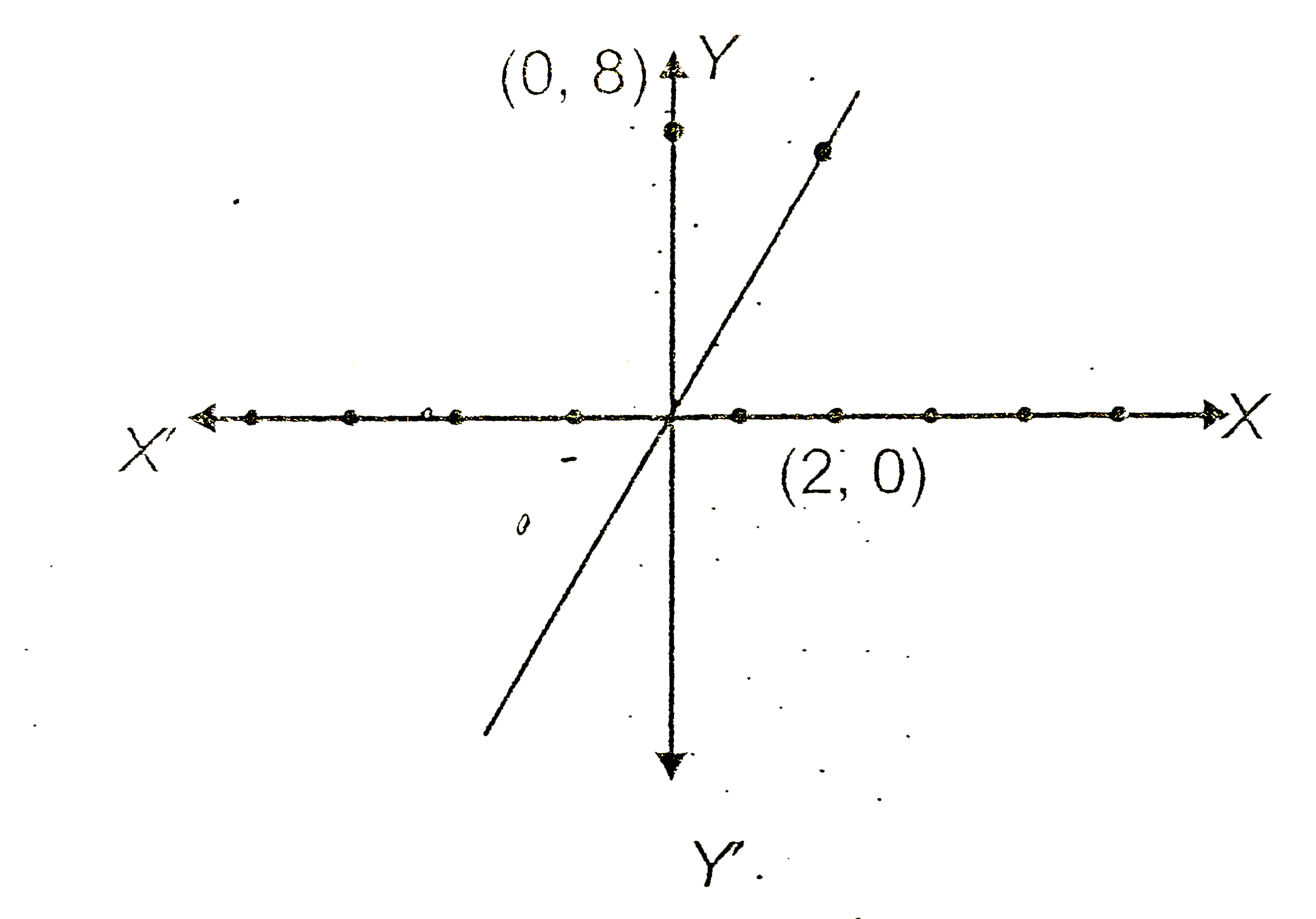For the function f(x)=4x. Find limx→2f(x)
Video Solution
Text Solution
Let us compute the value of function for values of x very near to 2.
Firstly, we consider values of x approaching 2 from the left i.e., x<2
x1.51.61.71.8.1.91.991.999f(x)=4x66.46.87.27.67.967.996
Now, we consider values of x approaching 2 from the right i.e., x>2
(x,2.3,2.2,2.1,2.05,2.03,2.01,2.001),(f(x)=4x,9.2,8.8,8.4,8.2,8.12,8.04.8.004)
Now from both the tables we observe that x approaches 2 either from left or right, the value of f(x) seems to approach 8.
So, limx→2f(x)=limx→2+f(x)=limx→2f(x)=8
This can be shown by the graph also

Here, again the value of the function at x = 2 coincide with the limit at x = 2
|
Updated on:21/07/2023
Topper's Solved these Questions
- BOOK - AAKASH INSTITUTECHAPTER - LIMITS AND DERIVATIVES EXERCISE - Try yourself64videos
LIMITS AND DERIVATIVES
- BOOK - AAKASH INSTITUTECHAPTER - LIMITS AND DERIVATIVES EXERCISE - SECTION - A50videos
LIMITS AND DERIVATIVES
- BOOK - AAKASH INSTITUTECHAPTER - LIMITS AND DERIVATIVES EXERCISE - Section - j3videos
LIMITS AND DERIVATIVES
- BOOK - AAKASH INSTITUTECHAPTER - INVERSE TRIGONOMETRIC FUNCTIONSEXERCISE - ASSIGNMENT (SECTION - J)(ANKASH CHALLENGERS QUESTIONS)4videos
INVERSE TRIGONOMETRIC FUNCTIONS
- BOOK - AAKASH INSTITUTECHAPTER - MATHEMATICAL REASONINGEXERCISE - Assignment (SECTION-D) (Assertion-Reason Type Questions)15videos
MATHEMATICAL REASONING
Similar Questions
Knowledge Check
- Question 1 - Select One
If the function f(x) satisfies limx→1f(x)−2x2−1=π, then limx→1f(x) is equal to
A1B2C0D3 - Question 2 - Select One
If a differentiable function f(x) satisfies
limx→−1f(x)+1x2−1=32
Then what is limx→−1f(x) equal to ?A−32B−1C0D1 - Question 3 - Select One
Let f:R→[0,∞) be such that limx→3f(x) exists and limx→3(f(x))2−4√|x−3|=0. Then limx→3f(x) equals
A0B1C2D3
Consider the function f(x)=1x2 for x>0. To find limx→0f(x).
View SolutionIf the function f(x) satisfies (lim)x→1f(x)−2x2−1=π,evaluate (lim)x→1f(x)
View SolutionConsider the function f(x)={2x≤02x>0 Find limx→2
View SolutionLEt f(x) be a differentiable function and f'(4)=5. Then, limx→2f(4)−f(x2)x−2 equals
View SolutionLet f:R→R be a positive increasing function with limx→∞f(3x)f(x)=1. Then limx→∞f(2x)f(x) =
View Solution

